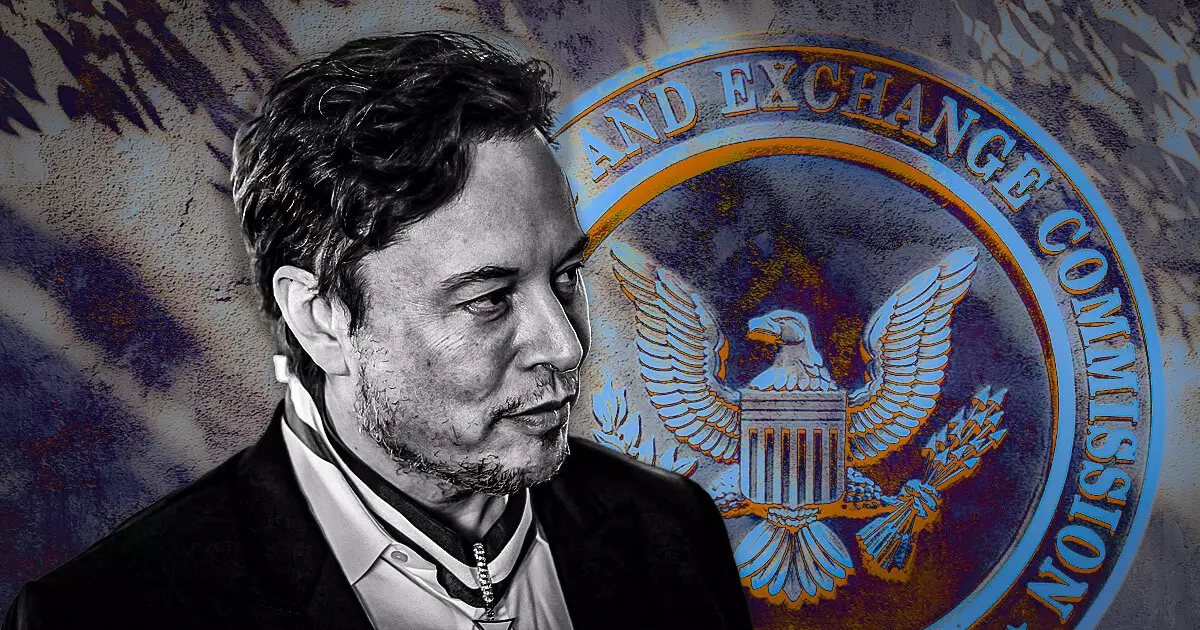In an ambitious move, the Department of Government Efficiency (DOGE) – spearheaded by Elon Musk – is now focusing its scrutiny on the U.S. Securities and Exchange Commission (SEC) as part of its broader initiative to pinpoint inefficiencies and unethical practices within government bodies. Launched with the aim of reducing governmental waste, the DOGE is seeking public collaboration by inviting individuals familiar with potential misconduct or inefficiencies at the SEC to come forward. This unprecedented approach marks a departure from conventional oversight mechanisms and unravels a convoluted relationship between regulatory bodies and the crypto community.
On February 17, DOGE used social media platform X to solicit insights from the public about the SEC’s internal operations. This strategy not only aims to shed light on any existing malpractices but also empowers citizens by involving them in the governance process. The directive from DOGE stated, “DOGE is seeking help from the public! Please DM this account with insights on finding and fixing waste, fraud, and abuse relating to the Securities and Exchange Commission.” Such an appeal reflects a more participatory style of governance, inviting scrutiny from citizens who may have previously felt sidelined in regulatory conversations.
Despite DOGE’s ambitious reform agenda, it has not encountered a smooth sailing. The reorganization within the department, characterized by personnel reductions aimed at improving efficiency, has stirred criticism from various quarters, including judicial figures like Judge Tanya Chutkan. Critics argue that sweeping reforms instituted by DOGE might compromise the integrity and operational effectiveness of regulatory bodies like the SEC. This backdrop of tension and opposition underscores the complexity of reshaping long-standing governmental frameworks while courting public participation.
The urgency of DOGE’s investigation has sparked intense debate within the cryptocurrency community. Industry leaders, such as Paul Grewal from Coinbase, are advocating for reforms that would fundamentally alter the SEC’s punitive measures against crypto firms. Grewal’s proposed policy for the SEC to reimburse legal expenses for businesses that successfully contest the regulatory agency’s enforcement actions indicates growing frustrations regarding the SEC’s credibility, particularly following notable legal setbacks under former Chair Gary Gensler. The recent ruling in favor of Debt Box, which revealed inaccuracies in the SEC’s claims and resulted in the agency being ordered to pay legal fees, is emblematic of a broader erosion of confidence in SEC enforcement mechanisms.
As DOGE delves deeper into its investigation, many industry stakeholders anticipate a significant impact on the regulatory landscape surrounding digital assets. Under Gensler’s leadership, the SEC’s classification of certain cryptocurrencies as securities has triggered legal challenges and market turmoil, leading critics to question whether these decisions actually served to protect investors. The hope among crypto advocates, as articulated by figures like Dan Gambardello, is that insights gained from DOGE’s inquiry will clarify the rationale behind the SEC’s categorization of cryptocurrencies, potentially leading to more favorable regulatory frameworks in the future.
DOGE’s provocative inquiry into the SEC is a significant development that raises questions about accountability within government institutions and regulatory practices impacting the cryptocurrency sector. While the potential for reform is palpable, the road ahead remains fraught with challenges as DOGE navigates public sentiment, agency pushback, and the complex nature of financial regulation. As this situation unfolds, all eyes will be on both DOGE and the SEC to observe how their interactions shape not only the future of regulation but also the broader narrative of government efficiency in the digital age.


Leave a Reply